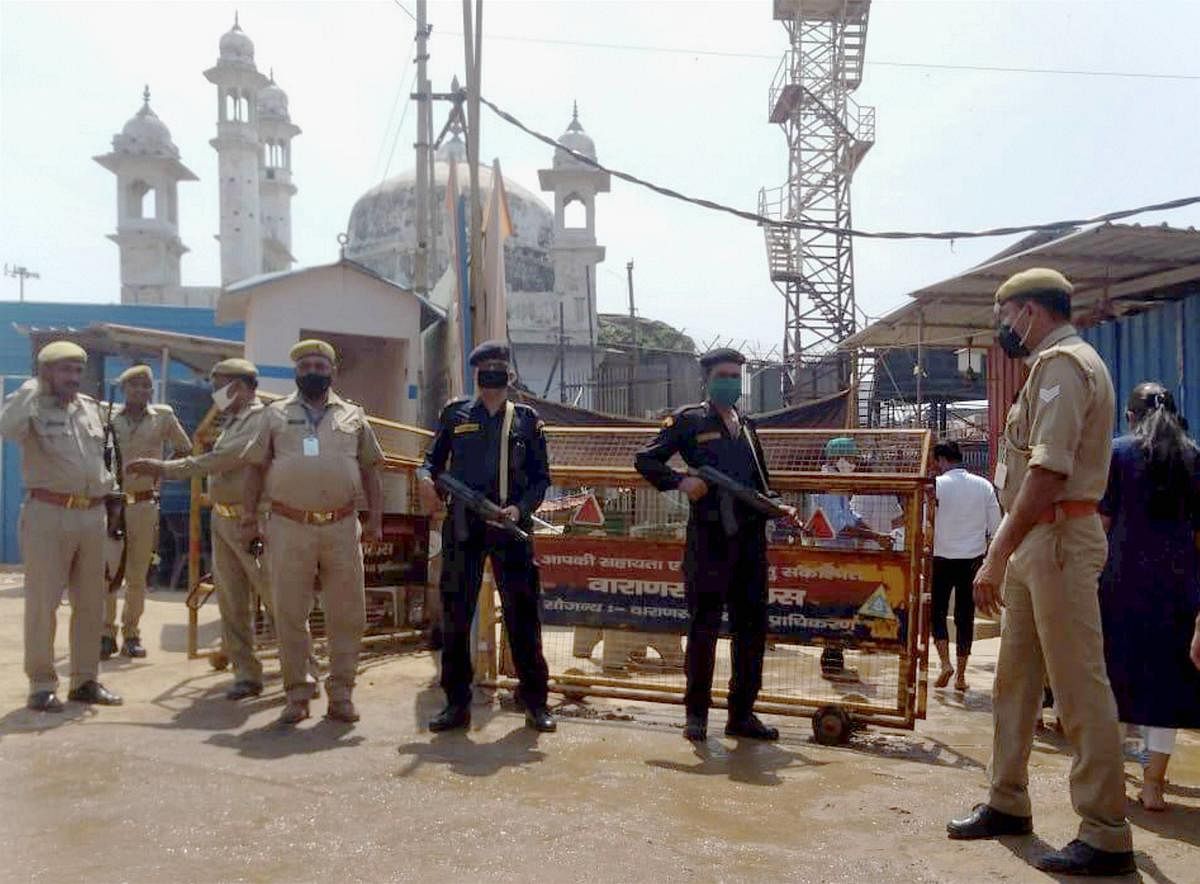
The order passed by a civil court in Varanasi, directing the Archaeological Survey of India (ASI) to conduct a survey at the Gyanvapi mosque which lies close to the Kashi Vishwanath temple, is apparently legally flawed. There is a long-standing claim that the mosque was built after demolishing a temple which stood there in the 17th century, and the survey ostensibly is intended to find out the veracity of the claim.
Sangh Parivar organisations, including the BJP, have demanded that the temple should be reclaimed, and clubbed the matter with the Babri Majid dispute. The claim has got a new life after the Supreme Court in 2019 awarded the site on which the Babri Masjid stood to the Hindu side. The Varanasi court’s order would bring the issue back into focus.
The court’s order seems to go against the intent of the Places of Worship (Special Provisions) Act, 1991, which froze the status of all places of worship, except the Babri Masjid, as it existed on August 15, 1947. As the law provided that all cases for change of status shall abate, the civil court’s order to the ASI would be considered as contrary to the law. There is also a stay, given by the Allahabad High Court, on a suit seeking the reopening of the issue.
The High Court has only last month reserved its orders on the maintainability of the suit. It is odd for a lower court to pronounce an order on a matter when the High Court is yet to decide on it and its stay is in operation. In a case relating to the Places of Worship Act, a different court had observed that the matter should be decided ‘’only after taking fresh evidence’’. It is this that has perhaps been used by the Varanasi court to tell the ASI to look for evidence of a shrine, but its legality is in doubt.
The issue of legality aside, the politics surrounding the temple issue is worrying and sends out signs of coming troubles as it may become disruptive and provocative. The Ayodhya campaign was polarising and did much damage to the country’s social harmony and communal peace. It gave rise to a more confrontationist and majoritarian politics. The divisions created then have widened since, and new issues are being brought up to keep the pot boiling.
The country does not gain by resurrecting old disputes and trying to correct history’s excesses and mistakes, even if they had happened. In fact, the issue that is sought to be made out over the Gyanvapi mosque is not about history or religion but about politics. The civil judge’s order will be challenged, but it has fore-fronted another divisive issue.